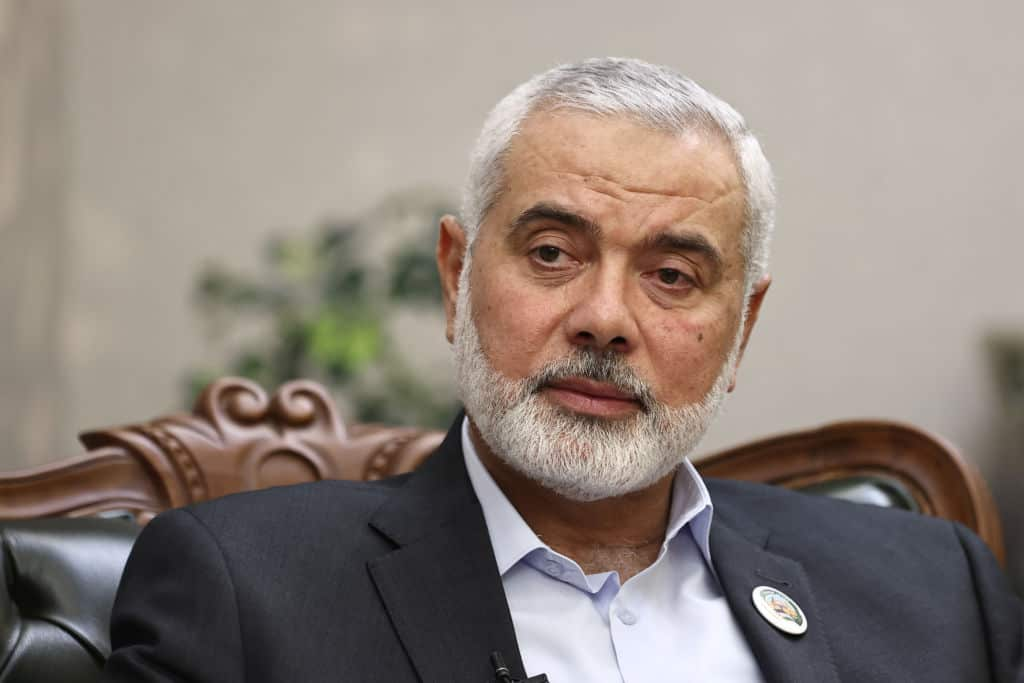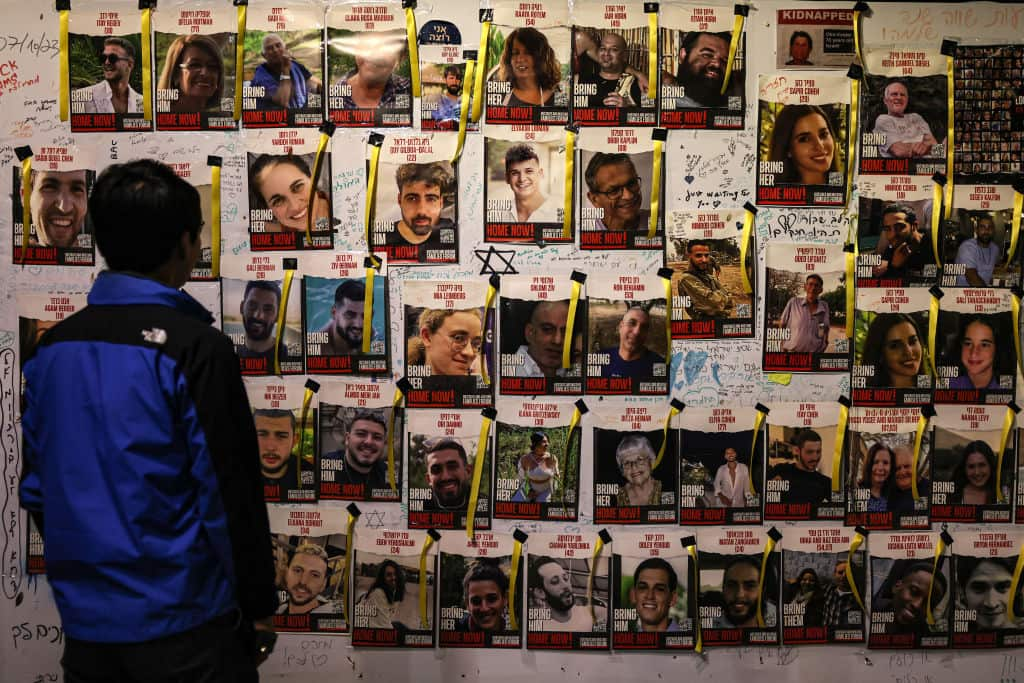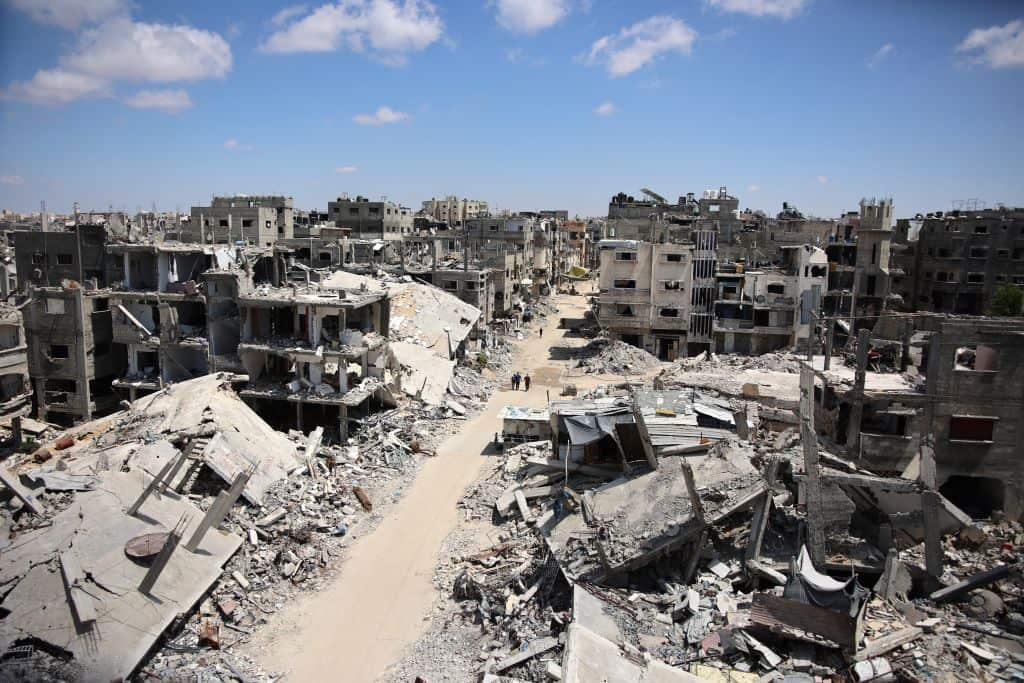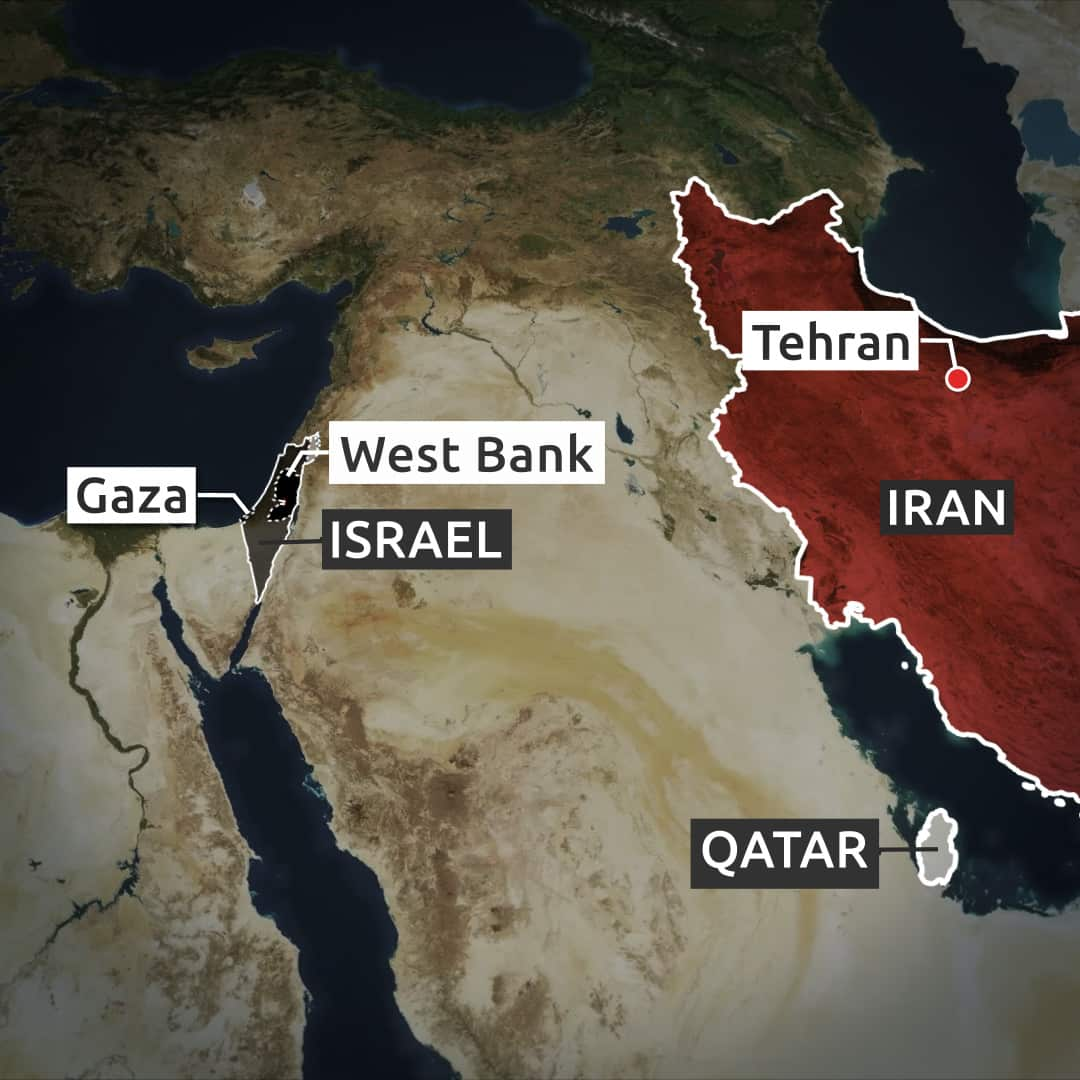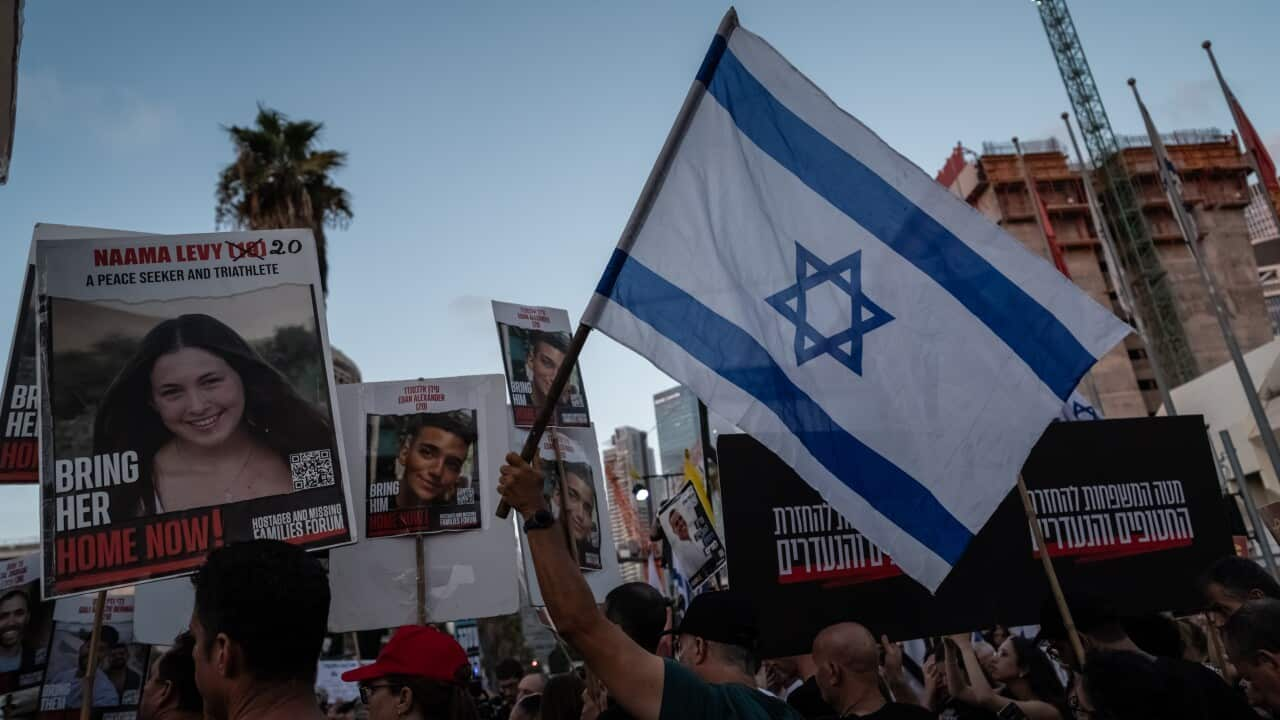With killed in an Israeli strike in Iran, the chances of dozens of Israeli hostages held in Gaza being released have diminished, experts say.
They say the attack also reduces any imminent possibility of a ceasefire in between Israel and Iran-backed Hamas, and fuels concerns the 10-month conflict may escalate.
Haniyeh, who was based in Qatar, was one of the founding members of Hamas and the organisation’s face of international diplomacy. He was involved in internationally-brokered talks on .
His reported assassination occurred less than 24 hours after Israel said it had killed suburb, in retaliation for . Hezbollah — — has denied any involvement.
Israeli Prime Minister Benjamin Netanyahu has not acknowledged responsibility for Haniyeh’s death but said to Iran’s proxies of late, including Hamas and Hezbollah, and would respond forcefully to any attack.
“Israel will exact a heavy price for any aggression against us from any arena,” he said in a televised statement.
Dr Martin Kear, a lecturer in international relations at the University of Sydney, described Haniyeh’s assassination as a “shock” and “highly provocative”.
“There’s been a tacit agreement for probably over 30 years that Israel has not targeted the political leadership of Hamas,” he told SBS News.
“This is the equivalent of Hamas assassinating Benjamin Netanyahu.”
The former political leader of Hamas Ismail Haniyeh in March 2021. Source: Getty / Anadolu
While it remains unclear who will replace Haniyeh, there is concern Hamas now has little incentive to negotiate with Israel on a ceasefire and hostage-release deal.
So if Israel was behind this attack, what was the reason? Where does it leave the hostages Netanyahu has vowed to bring back, and what’s likely to happen next?
What does Haniyeh’s death mean for Israel’s hostages in Gaza?
Hamas and other Palestinian militant groups abducted more than 200 people from Israel to the Gaza Strip, including children, women, and elderly people, as part of last year’s Hamas-led attack on Israel on October 7, which sparked the beginning of the war.
As of July, , according to Israeli officials. Some 111 were abducted in October, while the four other hostages were captured earlier.
The Israeli military has said 39 are now dead, but experts say this number could be much higher.
Mohammed Deif, the head of Hamas’ military, and Yahya Sinwar, the top Hamas leader in Gaza, were the chief architects of the October 7 attack. Deif was killed in an airstrike in Gaza in July, the Israeli military confirmed on Thursday.
Israel’s prison service has also held more than 9,400 “security detainees”, many seized in Gaza since the start of the war, according to a report by the United Nations Human Rights Office, which said Palestinian prisoners are being subjected to waterboarding, electric shocks and other forms of torture.
In response to the report, Israel’s military said it was illegal to abuse detainees and that some correctional staff had been dismissed for violating military rules in their treatment of detainees, according to the Associated Press. The military reportedly said all deaths in custody were investigated.
A man looks at posters bearing the images of Israeli hostages held in Gaza since the October 7 attack on the sidelines of a demonstration calling for their release in Tel Aviv in December 2023. Source: Getty / Ahmad Gharabli/AFP
Despite Israeli government spokesperson David Mencer stating that Israel remains committed to ceasefire negotiations and securing the hostages’ release, experts believe that without Haniyeh, these negotiations are unlikely to continue.
Ian Parmeter from the Centre for Arab and Islamic Studies at the Australian University told SBS News that the hostages would only be released as part of a ceasefire deal, which now looks unlikely.
“I think at this stage it’s very hard to see negotiations continuing because Ismail Haniyeh was the primary Hamas negotiator in the talks that were brokered by Qatar and Egypt,” he said.
“We assume at this point that there won’t be any hostage releases in the near future.
“I think the hostages and their families will be distraught.”
Kear said Haniyeh was “more pragmatic” than other members of Hamas and was “deeply involved in developing Hamas’ strategies for the release of the hostages and a ceasefire agreement”.
Hope for the hostages has now been extinguished, he told SBS News.
“Why should Hamas negotiate for the release of the hostages when Israel has shown no propensity to negotiate in good faith towards a peace agreement between Hamas and Israel?”
Qatar’s prime minister Sheikh Mohammed bin Abdulrahman Al-Thani, who has spearheaded efforts to broker a truce and hostage release deal between Israel and Hamas, added that Haniyeh’s killing threw the whole mediation process into doubt.
“How can mediation succeed when one party assassinates the negotiator on the other side?” he asked on social media site X.
“Peace needs serious partners.”
But Kear doesn’t think Hamas will kill or harm the hostages.
“They’re bargaining chips so Hamas wants as many of them alive as possible.”
So why was Ismail Haniyeh killed?
Netanyahu has been vocal about eliminating Hamas as a political and military entity since the start of the war.
“Israel had said it was determined to eliminate all of the Hamas leadership, and that included Haniyeh. So this is not really a surprise,” Parmeter said.
Families of the hostages worry that Israel’s military offensive may result in hostages being killed during Israeli bombings or from Hamas’ reprisals and have campaigned for a ceasefire.
Destruction in Beit Lahia in the northern Gaza Strip on Monday, amid the ongoing war between Hamas and Israel. Source: Getty / Omar Al-Qattaa/AFP
Kear believes a ceasefire would threaten Netanyahu’s power.
“He knows that as soon as there is a ceasefire agreement, there will be an inquiry into how the October 7 attacks happened; he’ll be held accountable, and his government will almost certainly collapse,” Kear said. And he will have no political cover to protect himself from the corruption charges that are still in abeyance.”
Parmeter added that agreeing to a ceasefire before eliminating Hamas would cost Netanyahu coalition support.
“If he loses his majority in the Knesset, he will have to be new elections, which Netenhayhu knows he would lose at this point,” he said.
Israel and Hamas traded blame on Monday over the failure to reach a ceasefire. Hamas accused Netanyahu of adding new conditions, which he denied,
Netanyahu also accused Hamas of making changes to the .
Is the Middle East conflict likely to escalate?
The war between Hamas and Israel has already heightened regional tensions, drawing in Iran-backed militant groups across Syria, Lebanon, Iraq and Yemen.
UN Secretary-General Antonio Guterres called the strikes on the Iranian capital, Tehran and on southern Beirut in Lebanon a “dangerous escalation”, while the White House said the twin killings “don’t help” regional tensions.
Haniyeh was killed in Iran.
The focus is now on Iran after its supreme leader Ayatollah Ali Khamenei threatened “harsh punishment” for Haniyeh’s killing, saying: “We consider it our duty to seek revenge for his blood as he was martyred in the territory of the Islamic Republic of Iran.”
Meanwhile, Hamas’ military wing said the killing takes its war with Israel to “new levels” that will have “enormous consequences for the entire region”.
Parmeter said Iran could likely retaliate.
“We really can’t say when that might be, except to assume at this stage that there will be some form of Iranian retaliation; they’ve promised that,” he said.
Kear agreed Iran’s leadership “will almost certainly be compelled to retaliate in some shape or form”.
The path ahead looks dangerous and unpredictable, he added.
“I think at the moment amongst Arab states.”
“I think there’s continued suffering for Gazans and for Palestinians in general,” he added.
“Inevitably, there will be a ceasefire agreement. But when that occurs is anyone’s guess.”
